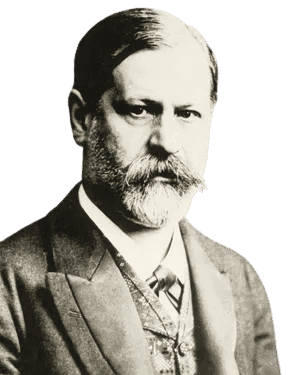Life and achievements
Early life
Sigmund Freud was born on May 6, 1856, in the small town of Freiberg in Moravia, now in the Czech Republic. Freud was the first of eight children of Jakob Freud and Amalia Freud, who were Jewish in origin. His father was a wool merchant, and despite a relatively poor income in Freud's childhood, he and his family appreciated education and intelligence, which played a significant role in Freud's life. His parents decided to move to Vienna when he was four years old, and Freud lived there most of his life. Freud was a bright student from the very beginning of his education. He knew several languages and was a good student in school, especially in literature, history, and biology.
Vienna, where Freud was brought up, was very influential in shaping his ideas. He began his university education at the University of Vienna at 17, planning to study law but changing to medicine. At university, he was tutored by several influential personalities, such as Ernst Brücke, who specialized in biology and physiology, which significantly impacted Freud's work. Before focusing on the human psyche, Freud studied the nervous systems of lower animals at the university and made some preliminary works. He graduated with a medical degree in 1881 but was already quite fascinated with the function of the brain and the nervous system.
In 1885, Freud went to Paris to study under the neurologist Jean-Martin Charcot, who was experimenting with hysteria and hypnotism. Charcot's work influenced Freud, and when he returned to Vienna, he started looking for the psychological aspects of neurological disorders. Freud was a medical doctor who started off practicing as a neurologist. Still, his interest in the psychological basis of neurological disorders and mental health problems resulted in the formation of psychoanalysis.
Legacy
Milestone moments
May 6, 1856
Birth of Sigmund Freud
Sigmund Freud was born on May 6, 1856, in Freiberg, Moravia, in the Austrian Empire in the Czech Republic. He was born to Jakob and Amalia Freud, both Jews.
Freud's family emphasized education regardless of their lack of wealth.
Freud was the first of eight children and had elder half-brothers from his father's first marriage, which played a role in his upbringing.
When Freud was four years old, the family moved to Vienna, where he lived most of his life.
Jun 5, 1881
Graduation from the University of Vienna
Freud graduated from the University of Vienna in 1881 with a medical degree.
His education had started several years before, and while Freud chose to study law first, he soon changed to medicine and biology, and it was here that he decided to focus on the brain and nervous system.
Freud's academic education was influenced by teachers like Ernst Brücke, whose opinions on biology and the body influenced Freud's ideas.
Mar 20, 1885
Education in Paris under Jean-Martin Charcot
In 1885, Freud was given the fellowship to study with Jean-Martin Charcot at the Salpêtrière Hospital in Paris.
Charcot was a famous neurologist for his work on hypnosis and hysteria, which left a great impression on Freud.
Freud's tutor, Charcot, made him develop a passion for understanding that psychological disorders could also lead to mental illness.
It influenced the development of Freud's future theories on the mind and mental health treatment.
Apr 23, 1895
Psychoanalysis and the Talking Cure: The Psychoanalytic Movement
By 1895, Freud had already been constructing the basis for psychoanalysis with the help of his colleague Josef Breuer.
Both of them wrote Studies on Hysteria, in which they came up with the idea of the talking cure, which means that patients should freely speak their thoughts and feelings to make unconscious material conscious.
This method was adopted as the fundamental therapeutic approach in Freud's practice and can be considered the official beginning of psychoanalysis.
